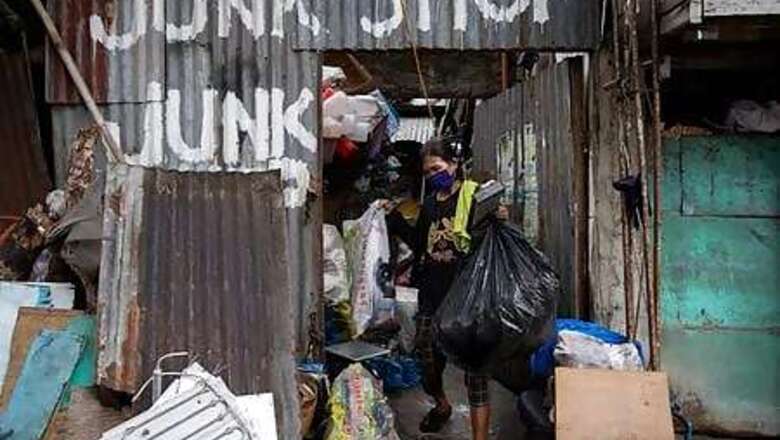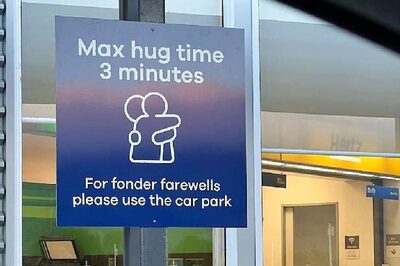
views
MANILA Virgilio Estuesta has picked through trash in the Philippines’ biggest city for four decades, and is noticing an unusually large amount of plastics during his daily trawl of about 15 km (9.3 miles).
Tough curbs re-imposed to combat a surge in daily coronavirus infections are squeezing income for the 60-year-old, as many of the junkyards and businesses in Manila that buy his recyclables have been closed since March.
Plastic items, such as bottles and containers, dominate the contents of the rickety wooden cart Estuesta pushes through the deserted streets, far more than metals and cardboard, yet the money they bring in is not enough to get by.
“It’s been really hard for us, it’s been difficult looking for recyclables that sell high,” he said.
“Recently we’ve been seeing a lot more plastics, but the problem is they don’t really sell high.”
Environmentalists say the Philippines is battling one of the world’s biggest problems stemming from single-use plastics, and ranks among the biggest contributors to plastic pollution of the oceans. It has no reliable data for its plastics consumption.
Greenpeace campaigner Marian Ledesma said consumers and businesses are now using yet more single-use plastics, in a bid to ward off virus infections.
   “The pandemic has really increased plastic pollution,” she added. “Just because there’s a lot more people using disposables now, due to misconceptions and fears around transmitting the virus.”
Since March 16, Manila has experienced lockdowns of varying levels of severity, in some of the world’s longest and tightest measures to curb the spread of the virus.
They are taking a toll on Estuesta, who hopes to start earning soon.
“When you go out, the police will reprimand you,” he said. “I was stuck at home and had to rely on government aid, which was not enough. I had to resort to borrowing money from people.”
(Interactive graphic tracking global spread of coronavirus: open https://tmsnrt.rs/3aIRuz7 in an external browser.)
(Reorting by Adrian Portugal and Peter Blaza; Writing by Martin Petty; Editing by Clarence Fernandez)
Disclaimer: This post has been auto-published from an agency feed without any modifications to the text and has not been reviewed by an editor




















Comments
0 comment